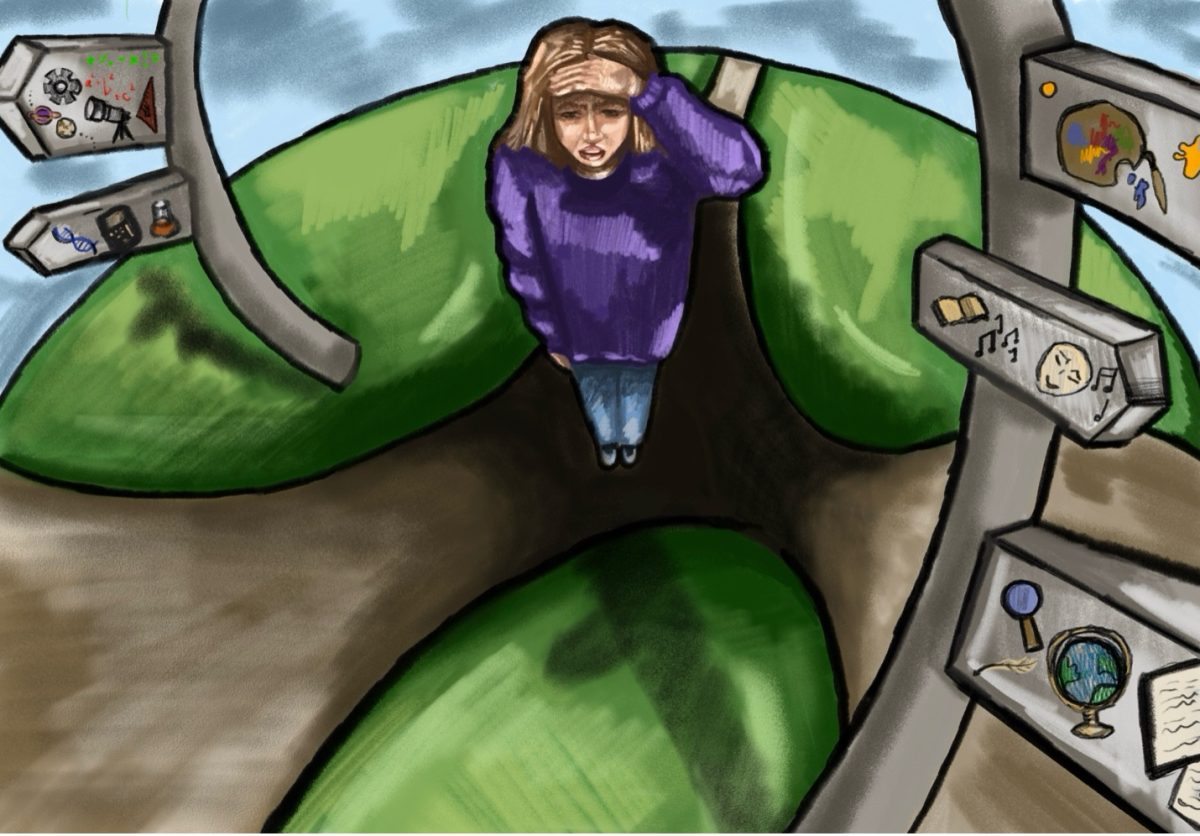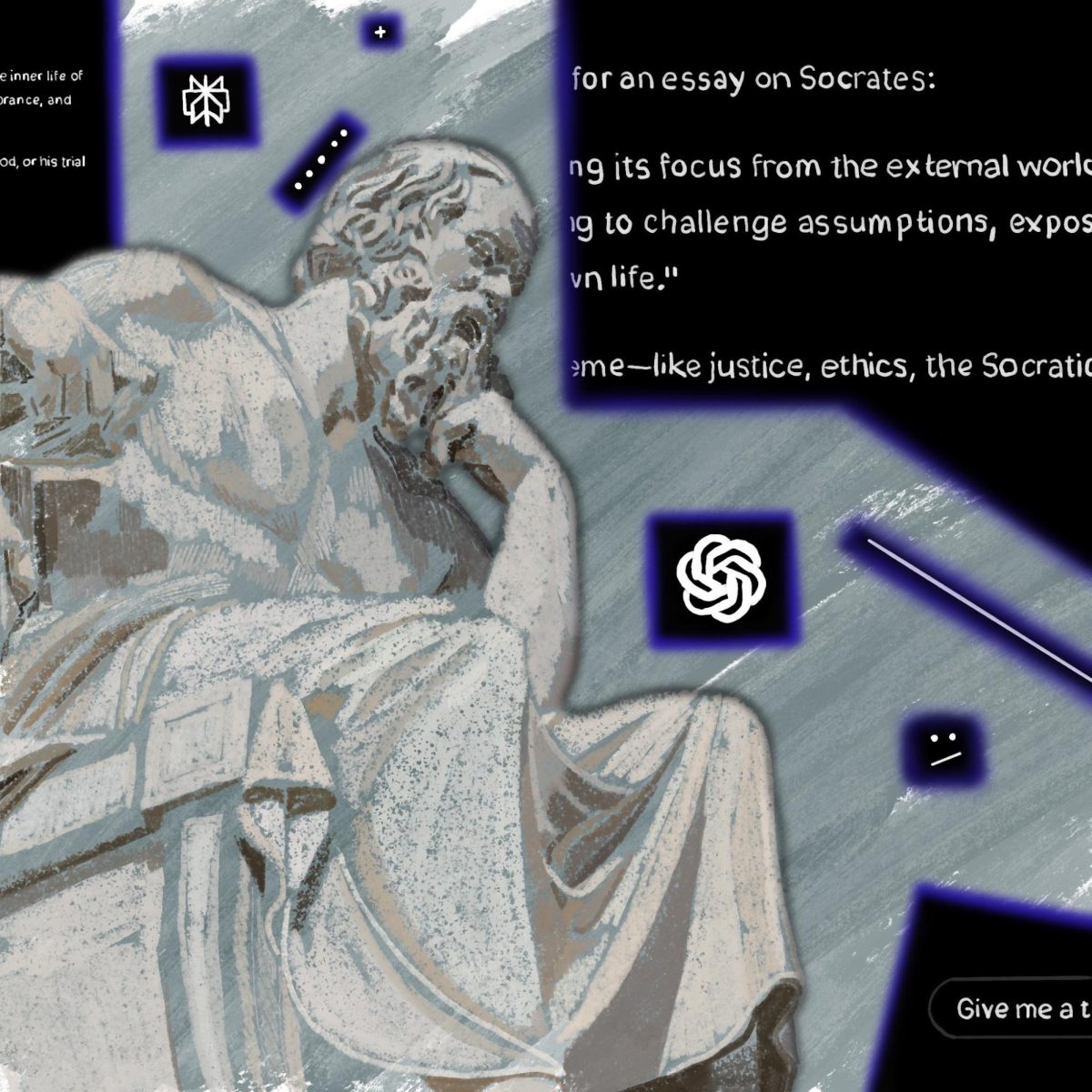“Be yourself,” though oft-repeated, is rather unhelpful advice. Unless you’re an actor or a spy, who else are you going to be? Nevertheless, we are frequently instructed to “be ourselves.” A couple of weeks ago in a Wall Street Journal op-ed, a high school senior named Suzy Lee Weiss challenged the value of this instruction. She writes, “Colleges tell you, ‘Just be yourself.’ That is great advice, as long as yourself has nine extracurriculars, six leadership positions, three varsity sports, killer SAT scores and two moms. Then by all means, be yourself!” I still can’t tell whether the article was intended to be satirical, but enough people agreed with the face value of her point that I think it’s worth examining what “being yourself” really means.
First of all, “being yourself” does not imply passivity. I am not exactly the same person that I was five years ago, and I hope that I won’t be exactly the same person that I am five years from now, either. Among other things, I’d like to write better, become more cosmopolitan, and develop the ability to carry around heavy boxes with ease. There are certainly people out there right now who are better than me at writing and carrying heavy things. I will readily admit that even if all of us are being ourselves, it’s perfectly fair to acknowledge the differences in our qualifications. However, this doesn’t mean that we have to be content to let the status quo stand: You can push your limits and try to develop as a person without compromising the core of your identity.
Furthermore, the objective of “being yourself” is not to get into the college of your choice. Take the University of Chicago, for instance: Out of 30,369 applicants to the College’s class of 2017, 2,676 were admitted. Logistically speaking, schools can’t take every person who is true to herself, even if that were the sole criterion for admission. And as much of a hubbub as colleges make about “fit,” there are certainly some standard things that are helpful for any applicant to have: stellar grades and test scores, community service, a quirky or uplifting essay, knowledge of a foreign language, leadership in school activities (especially sports or student government), interesting summer activities, and a transcript chock-full of honors and AP courses (and maybe even some college courses). None of these is easy to accomplish, but at least a person knows what kind of script to follow if she is intent on molding herself into a person that would appeal to an admissions committee.
But what if someone, like Suzy Lee Weiss, didn’t get into her top choice? Well, at that point, it’s helpful to be able to say that you know who you are and where you want to be. The point of “being yourself” is not to get accepted, but to understand how to respond to falling short of a goal. Though you might not have gotten what you wanted at the moment, “being yourself” means that you can use your experience and knowledge to form a plan B that will let you move on and work toward achieving longer-term goals—rather than having to re-mold yourself to fit whatever new laundry list of qualifications you think you’ll need. I say this not only in reference to college, but also to the opportunities that people pursue later on.
All of that being said, I don’t think that the advice to “be yourself” should be taken to heart too much at this point in our lives. We’re still at the age where many of us are busy exploring our identities. When I was in elementary school, I had an English teacher who admonished us for using the “to be” verbs excessively. “I want to see action verbs,” she proclaimed. I guess that’s the problem with telling people to “be themselves”—where’s the action? A lot of us want to take initiative in our lives, and “be yourself” doesn’t offer much guidance in that regard. There are better verbs: Push yourself, question yourself, confront yourself, confuse yourself. And, though this may seem contradictory, perhaps even change yourself, because sometimes understanding your identity involves some false starts and dead ends. “Being yourself” isn’t a state; it’s a process.
Jane Huang is a third-year in the College.







